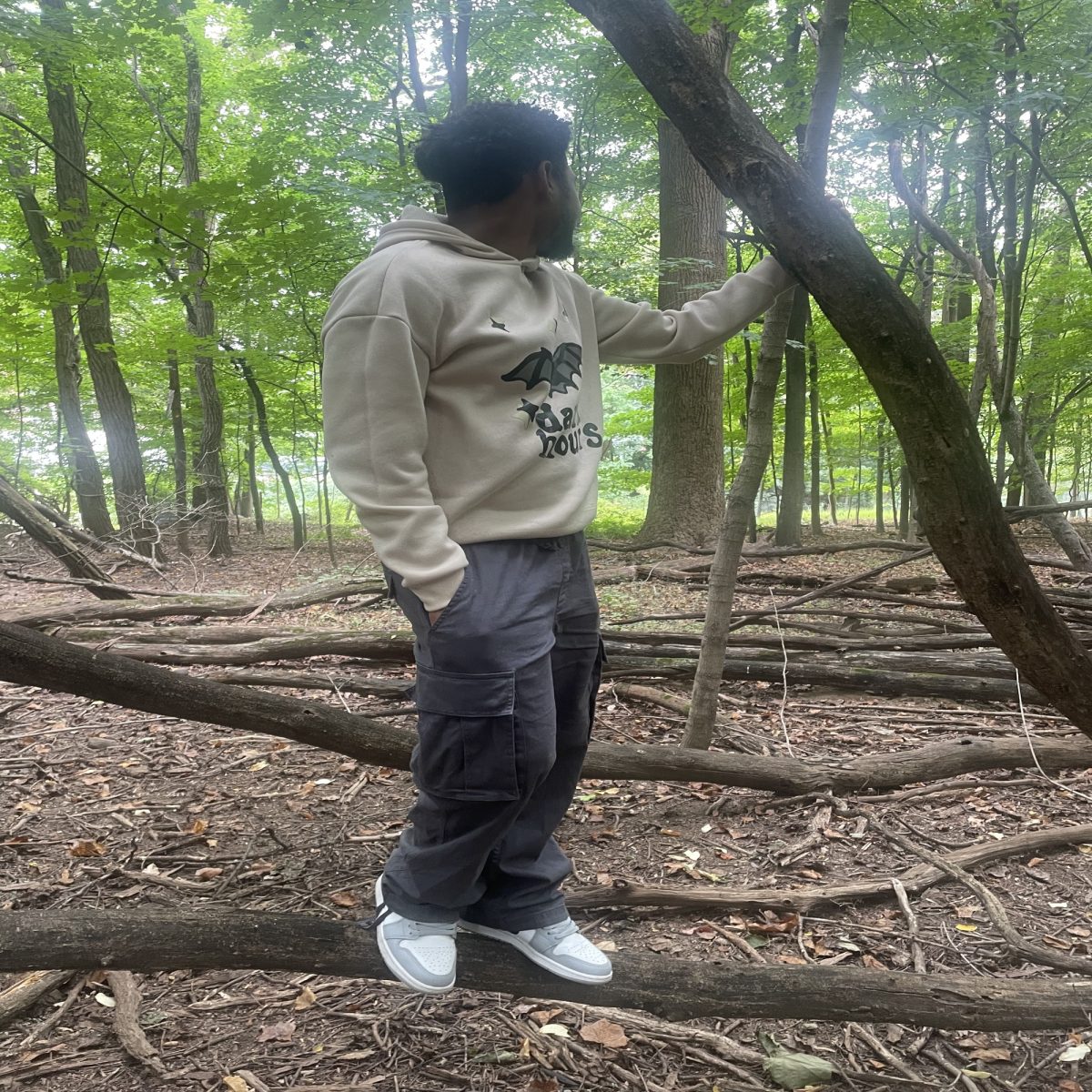It was only 11 days before Christmas. Holiday break was on their minds, as were presents and family parties.
Safety and normalcy.
Yet on Dec. 14, 2012, the children of Newton, Conn. who attend the Sandy Hook Elementary School had their innocence stripped away when a 20-year old murderer opened fire. He took 27 total lives that day, including his own, creating a horror that statistically is the second deadliest shooting in American school history.
The shooter took the semi-automatic guns from his mother, who is described by her community as a gun enthusiast that owned dozens of firearms. It has been reported that she took her sons shooting often.
Since the incident, supporters and proponents of gun control have been scrambling for Americans to choose a side. President Barack Obama publicly supported increased gun control laws and an assault weapon ban. The National Rifle Association countered by asking Congress for funds to provide armed police officers in every school in the United States.
New York acted quickly and changed its stance on guns, adapting the NY SAFE act.
Certain rifles are now excluded. Magazines can no longer hold more than seven rounds. No more shotguns with pistol grips or flash suppressors. Owners who purchased “assault” style rifles prior to Jan. 15 have one year to register them.
Gun enthusiasts in New York are crying foul, while those seeking regulation feel it was a positive first step.
The future of gun ownership laws, along with the motives behind school shootings, remains a mystery, yet they are arguments that are just beginning to take shape on the national stage.
***
Robert Stevenson, professor of graduate counseling, has been full-time faculty for nine years at Mercy College. He was an adjunct professor at the college for an additional six prior to he current tenure. Through his years as being a part of the campus community, Stevenson says he has never felt unsafe on any of the Mercy College campuses.
However, Stevenson does not believe that means college faculty and students should have a false sense of security. In fact, he believes that being diligent with regard to potential problems with someone is necessary at anytime or anyplace. Taking some very crucial steps could help prevent things from escalating.
” You should be concerned if a person shows signs of losing their equilibrium.”
Losing equilibrium describes someone that may do things such as rambling on about senseless or inconsequential matters and appear to be “unbalanced,” says Stevenson.
“If you are in class and notice a fellow student is showing signs of being unbalanced, kindly ask the student is OK. Speak to the student. He or she might not even notice how the behavior looks.”
Stevenson recommends getting the professors attention to advise them of the problem to assist and help the individual with getting to the best resource for further help if need be.
Repeated incidents between violent outbreaks in schools due to guns has become a source of heated debate throughout the country. In the state of New York, The National Rifle Association has called Gov. Andrew Cuomo’s recent gun control bill “draconian,” and has vowed to challenge it in the near future.
The new bill, known as the NY SAFE Act, mandates background checks on all gun sales, the creation and monitoring of a gun ownership database, and stricter rules concerning the mentally ill.
One of the NRA’s biggest complaints is the speed with which the bill was drafted and passed, causing them to issue a biting press release.
“Governor Andrew Cuomo and the New York State Legislature orchestrated a secretive end-run around the legislative and democratic process and passed sweeping anti-gun measures with no committee hearings and no public input.”
Cuomo defended the quick passage of the bill, citing concerns that even mere contemplation of increased gun control could cause a surge in gun sales; however, according to a recent article in Time, that spike occurred directly after the Newtown, Conn. shooting spree, leaving many gun retailers out of stock.
Wayne LaPierre, Executive Vice President and CEO of the NRA, advocates for the banishment of gun-free school zones, a stance he took five years ago after the Virginia Tech shooting.
“The only thing that stops a bad guy with a gun is a good guy with a gun,” said LaPierre.
A recent national survey by Pew Research shows that many Americans agree with LaPierre, with 64 percent in favor of populating schools with armed security guards and police officers. On the other hand, only 40 percent support arming teachers and school officials.
At the centerpiece of Cuomo’s new law is the required background check on all gun sales, whether public or private. This will provide a database of gun owners, allowing the government to periodically monitor that database for gun owners subsequently convicted of crimes, or treated for mental illness.
The NRA thinks this law will do no more to prevent gun violence than any other past laws have done, and that New York fell disappointingly short in making an impact on the issue of mental health.
“While lawmakers could have taken a step toward strengthening mental health reporting and focusing on criminals, they opted for trampling the rights of law-abiding gun owners in New York, and they did it under a veil of secrecy in the dark of night.”
The NY Safe Act requires mental health professionals to report patients who pose a potential threat to themselves or others.
Bob Carolla, Director of Media Relations for NAMI, the National Alliance on Mental Illness, expressed concern with this aspect of the law.
“The New York law was rushed through without much consultation with the mental health community. A key concern is the chilling effect it may have on people even seeking help– let alone communicating freely with a mental health professional. In that sense, it could backfire.”
Carolla says NAMI will remain vigilant.
“We are working with Congress and various states on reporting proposals. We’re still examining the New York law with an eye toward how it’s implemented.”
Some requirements of the new gun law seem to be purely common sense; for instance, if someone has been issued a restraining order, his gun license will be immediately suspended or revoked.
Other sections, such as allowing ammunition magazines with only seven rounds instead of 1o, have provoked strong reactions in gun owners.
Bernie Snell, 43, of Glens Falls, has signed a Facebook petition which is trying to declare the New York Safe Act to be unconstitutional. He agrees that stricter gun control is unfair.
“Cops can have more than seven rounds in their guns; why can’t I? They’re above the law now, too? What else will be taken away from us if we don’t fight?”
Gun advocates fear that the New York law is a sign of things to come in the rest of the nation. On the Gun Owners of America Facebook page, many of the comments are predictable and heated, comparing Obama to Hitler, for example, and making wide leaps from how the creation of gun control laws will lead to genocide.
Other members seem genuinely concerned that not enough is being done to prevent another tragedy like Newtown, worried that gun free school zones create magnets for tragedy.
“You can overpower the extremists with intelligence and common sense,” Cuomo said to defend his bill to CNN.
***
Mercy College’s Manhattan Campus was the scene of an incident involving a student making a threat of violence against another with the implied use of a weapon, according to various sources on Friday, Jan.15.
An argument erupted between two students turned potentially dangerous when one of them threatened to harm the other with a weapon. The altercation was overheard by a teacher, but no weapon was physically seen or produced from the incident, according to a report filed with Manhattan police headquarters.
As of this time, there have been no official charges filed by any party involved or the school. According to police officials, cases like this usually are “deemed not active” and tend to get closed if no actions are taken within a specific time frame.
However, the incident is listed as a harassment incident by the police.
The threatening student has been reported to have been suspended from all Mercy College campuses by sources, but there has been no official comment publicly released by Mercy College regarding the incident.
With recent violent gun attacks in schools and public venues, the topic of gun control is a major hot topic across the country.
At Mercy College some students are concerned about the potential of random campus violence.
Kate Martinez-Beaman, a film and culture senior, has been at Mercy four years. During normal daytime college hours, she says that she feels reasonably safe and has never had much of a concern about potential violent scenarios. However, she did express that as a female student, things tend to be a bit different at night.
“Until last semester, I had never really noticed much security presence at night, so I was on my guard more when I had evening or night classes. But as a woman, I am generally aware of my surroundings anyway.”
Regardless of whether if it was day or night, she wonders if campus security is trained to handle the extreme situations that have befallen so many other college campuses.
However, 22 year-old Joseph Marks, a junior and homeland security major, had another take on the matter. He is 6′ 4″ and says because of his size, he does not generally feel that many would-be attackers look at him as an easy target.
He is not too concerned about his safety on campus, but does feel that things could be better in regard to student safety in case of an emergency and offers a suggestion for improvement.
“I think that there should be more emergency response stations throughout campus like the ones by the train pathways. Maybe have them in all the buildings and not just outside.”
Marks believes that having them inside buildings would be a way to alert security more quickly and allow them to respond much faster in the event that there was an unfortunate situation that developed.
The potential for unpredictable random violence was evidenced in an incident that occurred recently on the Dobbs Ferry campus this month, but the actions of Mercy employees defused the situation.
On Feb 7, an irate male student stormed into the library located in Main Hall shouting at staff and other students, according to witnesses. The student had fallen at some point before or after he missed his train. It is not clear if the student had missed the train because of falling or if it happened after the train had departed.
Samantha Martinez is an 18 year old pre-vet freshman. She was in the library when the distraught student came into the library.
“He said that he fell and cut his knee. He cursed and shouted at people behind the library front desk.”
Martinez said that his mental state seemed to be caused by something much more than missing the train. She felt his anger did not match the severity of what he said happened. A male library staff member came out and talked to the student and successfully calmed him down. Afterwards, the student sat down at a table near her.
Martinez said that she was concerned and that the incident had potential to escalate. The student still seemed to be angry because he asked another student where he was sitting “what the (expletive) are you looking at?” Security was not notified, as far as she knew.
“I really wasn’t scared because the guy on the (library) staff handled it well, but I felt bad for them because of what they had to go through.”
Samantha Minnigan, also an 18 year old pre-vet freshman, witnessed the matter as well. Her account of the incident echoed what Martinez had said, but it had a decidedly different impact on her.
“I was afraid, but because of the way the staff member handled the situation, I was OK.”
Minnigan went on to say that even after witnessing what happened, she did not feel that her safety is at risk here at Mercy.
“Violence could happen anywhere, and there is just no way that you can really predict where it will happen.”










